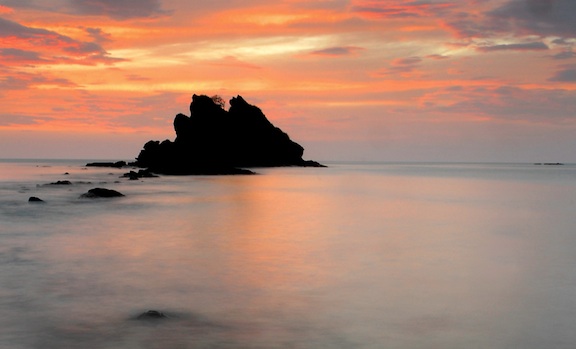Above: Costa Rica (Photo: Costa Rica Tourism)
By Alexander Britell
PORT OF SPAIN – As the Caribbean seeks to bring sustainability to its tourism sector, it may find inspiration in the southwest corner of the Caribbean basin.
Indeed, the region can source a number of ideas from Costa Rica, according to Martha Honey, co-director of the Washington, DC-Center for Responsible Travel.
While the concept and application of sustainable tourism is relatively new in the Caribbean, at least in a general sense, sustainable tourism has long had a foothold in the Central American country, beginning in the 1980s.
Over a five-year period, Costa Rica was soon hailed as an eco-tourism destination, Honey said Thursday at the Caribbean Sustainable Tourism Conference in Port of Spain.
“It gained that reputation and built its eco-tourism model based on its own resources, on a strong middle class and good social services, using what was already in the country,” she said.
That was done by capitalizing on a strong national parks system, she said, and emphasizing the local community.
“It was originally, and today largely remains locally owned, either by Costa Ricans or by foreigners who have made Costa Rica their home,” she said.
Over the first two decades of focusing on sustainable tourism, Costa Rica saw a 7 percent increase in tourism arrivals, she said, while earnings saw a 14 percent increase.
“That means as Costa Rica moved into eco-tourism, it was earning two times more per tourist — by the mid 1990s, it was the largest foreign exchange earner in the country,” she said.
That was not without challenges, however. Costa Rica’s tourism boom led to a wave of more traditional resort development, leading to a competition between the eco-tourism sector and large-scale, all-inclusive resorts.
“More recently, over the last decade, a new kind of tourism moved into Costa Rica,” Honey said, “the kind that is much more prevalent within the Caribbean.”
That translated into the construction of around 100 coastal resorts.
“Costa Rica is unique in that it built its eco-tourism sector first, and then conventional tourism came in,” she said. “One of the challenges is for a small country to hold a kind of dual image, of both a mass tourism destination and a nature-based small-scale tourism destination.”
For the Caribbean, it’s a different proposition: shifting from more traditional resorts to a sustainable model.
And the Costa Rican lesson is something the Caribbean needs to keep in mind if it wants to move toward sustainability, according to Graham McKenzie, managing director at TravelMole and director at ResponsibleTravel.com.
Costa Rica is “starting to weaken their sustainable tourism by allowing more all-inclusive resorts to develop along the coastline,” he said.
The Caribbean “needs to look at Costa Rica, and see the good things they’ve done, and how they increased visitor spend and generated a whole marketing platform around responsible tourism, and see what they can do rather than just giving into large hotel chains that want to exploit the Caribbean for what it’s got to offer,” he said.
